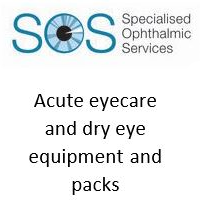Professional Matters Optometry & Dispensing
How to Avoid Malpractice Allegations
Most Common Medical Claims: How to Avoid Malpractice Allegations
In the 2021/22 financial year, NHS Resolution received more than 15,000 negligence claims from patients across the country.
So, even though medical professionals strive to provide the safest and most effective treatment as possible, serious allegations can occur from time to time.
It is important to recognise that similar situations could happen to your healthcare organisation too. This is why it is always wise to have clinic and medical malpractice insurance in place to protect your business’ finances and clinicians’ reputation from alleged incidents.
But what are some of the top medical claims filed by patients? And what can you do to prevent these scenarios from happening in the first place? Let’s take a closer look.
Most frequent types of medical claim
Colin Kirkpatrick, Director of Insurance and Partnerships at MPS Partnerships, said: “There are many reasons as to why a patient may feel let down by their medical professionals and be unhappy or dissatisfied with the kind of treatment they have received.
Medical malpractice allegations represent a difficult situation for all involved and can be damaging to clinicians in a number of different ways. Some may fear damage to their reputation, others can find claims very stressful. The effects can impact on the ability of doctors and nurses to carry out their jobs and some may start to practice with an abundance of caution, leading to unnecessary investigations and unnecessary management of future patients.
Given the detrimental impact these allegations can have, it is always useful for a healthcare organisation to be aware of what some of the most frequent types of medical claim are. This way, you’ll know what to expect should your business receive a claim of medical malpractice and, importantly, you can also start to consider strategies to prevent them arising in the first place.”
Some common medical claims to keep an eye on:
- Wrong or delayed diagnosis –This type of claim refers to when a medical professional provides a patient with an incorrect diagnosis or, despite many contacts with the patient, they fail to recognise the diagnosis and it is only made by them or someone else much later after days, weeks, months or even years. A wrong or delayed diagnosis can be made when seeing a patient or when reviewing any of their investigation results. For example, a delayed diagnosis of lung cancer can arise when a cough is mistaken for an exacerbation of COPD or when a chest x-ray is misinterpreted.
- Failure to refer – This type of claim can link with wrong or delayed diagnosis. If a patient thinks that they haven’t been promptly referred to a specialist, this could turn into a medical malpractice claim. This is especially the case if the failed or delayed referral has contributed to a decline in their well-being and impacted on the type of management they might receive and their prognosis.
- Incorrect prescribing – A patient might make a claim for incorrect prescribing if they believe they have been harmed after receiving an incorrect medication or dosage. Examples include penicillin being given to a patient who is allergic to penicillin, the wrong dosage of a drug being administered, or a medical professional not checking for any contraindications to the drug or any incompatibility with the patient’s other medications.
- Failure to act on test results – If a patient has an investigation, the results should be followed up in a timely fashion and action taken as deemed necessary. Claims can arise for failing to act on any type of test result but examples can include not acting on a low haemoglobin post surgery in the context of a symptomatic patient, or a raised CRP when there is possible peri-operative sepsis. If test results come back after a patient has been discharged and they need action or further follow up, this should be communicated to the patient and other health professionals who could reasonably act on those results.
- Failure to consent – This is a very common subject of medical malpractice claims. They arise if a patient believes they were not appropriately consented for a procedure – that’s to say consent was not informed. The patient will then say if they had been informed about the procedure they would not have gone ahead with it and so would not have suffered the injury that arose as a result of having the procedure.
How to prevent medical claims
Allegations of medical malpractice can have a large array of negative consequences.
However, there are some steps you can take as an organisation to help mitigate against such claims:
- Documentation – This can be key to preventing medical negligence allegations – or to responding to them adequately. Remind staff that documentation should be as contemporaneous as possible, stating clearly and legibly what has been done, when, by whom and upon what basis where a rationale is required.
- Consent process – Appropriate, informed consent is crucial. Staff should be encouraged to read the GMC’s guidance on ‘Decision making and consent’ as this is very important and helpful [(Decision making and consent – ethical guidance – GMC (gmc-uk.org)]. Consent is an article in itself and there is lots of useful material prepared by Medical Protection on this topic [for example: Consent and alternative treatment options (medicalprotection.org)]. But in general, a patient should be advised of what their procedure involves, what the benefits are of it, the risks are of it including short-, medium- and long-term risks and anything which may be materially significant to the patient, and what the alternatives to their procedure might be including no treatment at all. Patients should be allowed time to consider what you tell them, and be able to ask questions. Appropriate counsel can apply to procedures as well as new medications that a patient may be started on.
- Use relevant guidance tools and checklists – To facilitate patient management, encourage staff to have guidance and checklists at hand. Any deviation from appropriate guidance needs to be justified and recorded in the records.
- Communication – Good communication is key to the doctor-patient relationship and patient management. Remind staff to communicate with their patients in a clear, understandable way, and avoiding complex terminology that might cause unnecessary confusion.
- Handover between shifts – Hospitals run 24/7 so your staff will be working in shifts. Handover between staff is particularly important especially when there are very sick patients that need careful oversight or when there are outstanding tasks to follow up. Staff need adequate undisturbed time to handover properly to each other to ensure the safe continuity of clincial care.
- Know processes and equipment – As a healthcare business, it’s important to ensure staff are au fait with key processes and systems in the clinic or hospital. New staff should have a proper induction to facilitate this.
- Practise self-care – Given the hectic nature of healthcare, this can be easy to overlook. However, when tired, hungry, or stressed, anyone can make mistakes. Looking after oneself as a clinician and a healthcare organisation that facilitates this, is just as important as the care patients might expect.
Sources
https://www.statista.com/statistics/893770/number-of-claims-reported-to-nhs-england-by-type/
https://www.gmc-uk.org/ethical-guidance/ethical-guidance-for-doctors/decision-making-and-consent
https://www.medicalprotection.org/uk/articles/consent-and-alternative-treatment-options
This piece comes from MPS Partnerships., it will remain as a page post in our archived section under Clinical Briefings
























